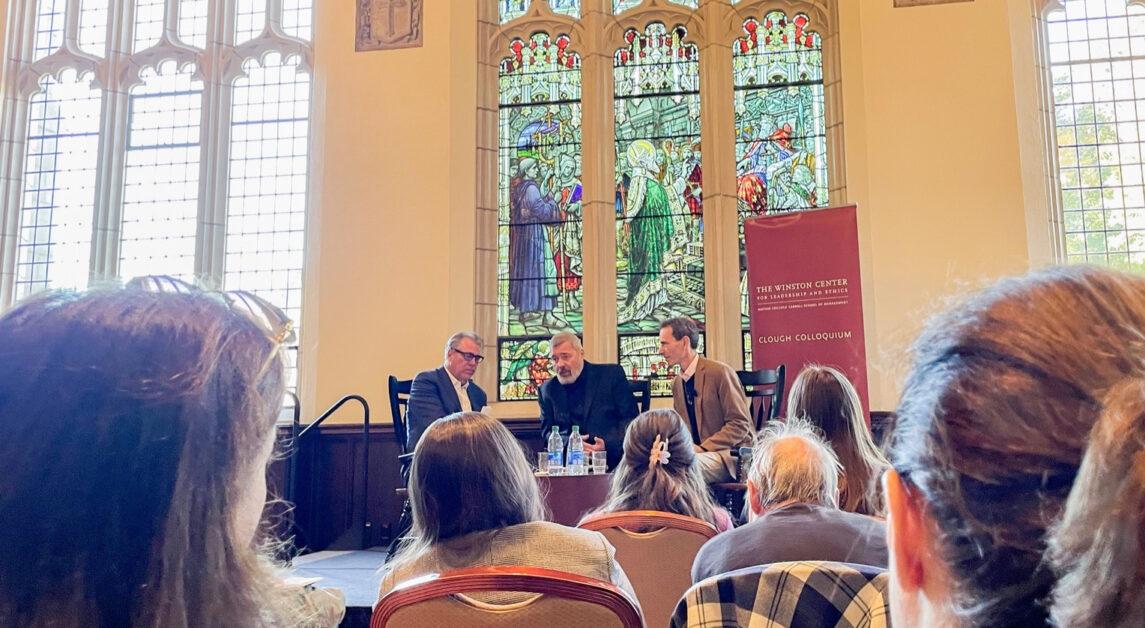Muratov, winner of the 2021 Nobel Peace Prize, reflected on truth-telling in journalism amid the war in Ukraine as part of the Winston Center for Leadership and Ethics’s Clough Colloquium series.
“We directly deal with the fact that we are facing nuclear disaster right now, nuclear conflict, potentially as a result of propaganda,” Muratov said.
Russian propaganda, he said, was one of the major factors contributing to the war in Ukraine and its recent developments.
“Propaganda always works for the state,” Muratov said. “Our media, of yours and mine, work for people.”
Media influence has a large effect in society today, according to Muratov. During the Rwandan genocide in 1994, Muratov said radio stations transmitted hateful messages about the Tutsi people.
“[A professor] studied the distribution of the shortwave of the radio station across Rwanda,” he said. “Those villages who received a strong signal, the people there would take a machete and they would go and massacre. Those villages that did not have a strong signal … no one ever had any idea of committing any massacre.”
Propaganda has two principles, according to Muratov. The first is that it uses recognizable historical events and experiences to perpetuate a narrative. The second is that it pushes the narrative that propagandists are the victims. Muratov said the Russian government has done both of these.
“In this particular case, [the Russian government said] that we never wanted to attack anyone, but we had to,” Muratov said. “We had no choice [but] to defend ourselves.”
Many reporting from the ground in Ukraine have been influenced by “new journalism,” Muratov said. “New journalism” helps reporters to work in the field and with big data.
Journalism has also played an important role in the perceptions of Russia and Ukraine during the war. According to Muratov, it is important to consider Ukranians’ perception of Russia because this perception will remain for years to come.
“Ukraine perceived the attack as a betrayal and they will never forgive Russia,” Muratov said. “We will be long dead and Ukraine will still hold grudges against them.”
According to Muratov, Russian President Vladimir Putin has written that Ukraine’s existence in itself was a mistake made by Vladimir Lenin.
“[According to Putin], Ukraine has always been a mistake, and that there is no such thing as Ukraine—just a mistake,” Muratov said. “So, to satisfy this historical illusion, the war [in Ukraine] has begun.”
To raise money for Ukrainian children affected by the war, Muratov sold his Nobel Peace Prize medal in June.
Muratov praised former President of the Soviet Union Mikhail Gorbachev, who also sold his Nobel Peace Prize medal to help others, for his work to create peace.
According to Muratov, Gorbachev gave the Russian people an invaluable gift when he served as president. Russian propaganda, he said, has put this gift in jeopardy.
“He gave us a gift—a gift of 30 years of peace,” Muratov said. “And now the gift is no more.”
Update (10/14/22, 10:27 a.m.): This article was updated to reflect that the Winston Center for Leadership and Ethics in the Carroll School of Management hosted the Clough Colloquium event.













